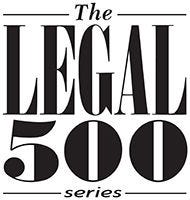-
Pharmaceuticals
- Dana-Farber Cancer Institute (“Dana-Farber”), a Boston-based non-profit research institution, in Dana-Farber Cancer Institute, Inc. v. Bristol-Myers Squibb Co. et al. (D. Mass.); Dana-Farber Cancer Institute, Inc. v. Bristol-Myers Squibb Co. (PTAB); Dana-Farber Cancer Institute, Inc. v. E.R. Squibb & Sons, L.L.C., et al. (PTAB), a patent licensing dispute against pharmaceutical giant Bristol-Myers Squibb (“BMS”) and Ono Pharmaceuticals over six patents (the “Honjo-Freeman Patents”), co-owned by Dana-Farber and BMS, directed to the Nobel Prize-winning, life-saving invention in the field of cancer immunotherapy. Dr. Gordon Freeman of Dana-Farber was a co-inventor of the revolutionary work administering PD-1 (Programmed cell death protein 1) and PD-L1 (Programmed cell death protein 1 ligand) antibodies to treat cancer, which is described in the Honjo-Freeman Patents. Dana-Farber’s state law claims sought damages related to the licensing revenue BMS received when it claimed exclusive rights to license the Honjo-Freeman Patents. As part of the larger dispute, Dechert also represented Dana-Farber in three inter partes review (“IPR”) proceedings challenging the validity of patents owned by BMS that are also related to PD-1 and PD-L1 and important to BMS’s PD-1 portfolio. In April 2023, the district court case and all three IPRs settled on favorable terms for Dana-Farber.
- Endo Pharmaceuticals, a global specialty pharmaceutical company, in a series of related Hatch-Waxman patent infringement actions filed against seven generic companies regarding its OPANA® ER (oxymorphone ER) tablets, which at its peak, was Endo’s second highest-selling product with US$300 million in annual sales. In Endo Pharmaceuticals v. Teva, et al. and Endo Pharmaceuticals Inc., et al., v. Impax Laboratories, Inc. (S.D.N.Y.), the Dechert team prevailed in a five-week trial against seven generic companies, and later secured Federal Circuit affirmance of its hard-fought patent trial victory, so that none of the generic versions of OPANA® ER (oxymorphone ER) involved can come to market before Endo’s patents expire in 2023. Dechert also prevailed in two separate patent trials in the District of Delaware with respect to an additional patent that Endo exclusively licensed from Mallinckrodt. The Federal Circuit affirmed that all defendants are enjoined from selling their generic products through 2029.
- Eli Lilly & Co. in a complete victory regarding its blockbuster immunosuppressant antibody therapy TALTZ® (ixekizumab) in Genentech, Inc. v. Eli Lilly & Co. (S.D. Cal.), a patent infringement action brought by Genentech, in which Genentech dismissed all claims with prejudice and Lilly was declared the prevailing party in 2020. Dechert also assisted Lilly in related global litigation, in which Lilly won a patent revocation action against Genentech in the UK High Court of Justice.
- Eli Lilly & Co. in a complete victory in Eli Lilly & Co. v. Genentech, Inc. (PTAB), a Post-Grant Review (PGR) proceeding before the Patent Trial and Appeal Board of the U.S. Patent and Trademark Office (USPTO). Lilly’s innovative PGR challenge of Genentech’s patent was successfully instituted in late 2019, and was recognized in the industry as one of the first life sciences PGRs involving written description and enablement challenges to antibody technology in co-pending litigation with a marketed commercial biologic. Lilly successfully obtained an entry of adverse judgment against Genentech in 2020, rendering all claims unpatentable.
Electronics and Computers
- Microsoft in Microsoft Corp. v. Hon Hai Precision Industry Co., Ltd. (N.D. Cal.), a patent royalty dispute with leading smartphone manufacturer Foxconn (a/k/a Hon Hai Precision). Microsoft filed suit in the Northern District of California, alleging that Foxconn had cheated it out of patent royalties due under a patent license for Android phones. After obtaining two sanctions orders for withholding evidence in China, and ferreting out evidence showing that the missing royalties were, potentially, extremely financially significant, the team filed a motion for terminating sanctions for discovery abuse. The liability trial was set for November, and the team filed a motion for summary judgment as the plaintiff. Judge Koh granted Microsoft summary judgment on Microsoft’s affirmative breach of contract claim and validated the damages model. She issued a separate order dismissing virtually all of Foxconn’s defenses. Facing a trial with potentially significant damages, Foxconn settled.
- Hitachi, a leading Japanese technology company, and related entities in enforcing the Hitachi digital television and monitor patent portfolio against companies around the world. In all, Dechert has negotiated with, licensed or litigated against the entire computer monitor industry, collecting hundreds of millions of dollars on Hitachi’s display patents.
- Samsung Electronics in Red Rock Analytics, LLC v. Samsung Electronics Co., Ltd., Samsung Electronics America, Inc., Samsung Semiconductor, Inc., and Samsung Austin Semiconductor LLC (E.D. Tex.), a patent infringement case involving mobile phone transceiver technologies. After previewing Samsung’s non-infringement and damages arguments to Red Rock through the exchange of expert reports and at the pre-trial conference, the case concluded on favorable terms.
Other Patent Litigation
- Quest Diagnostics Inc. and Quest Diagnostics Nichols Institute in a complete defense verdict in a jury trial in Cedars Sinai Medical Center v. Quest Diagnostics Incorporated (C.D. Cal.). Cedars-Sinai alleged that Quest infringed a patent for a method for detecting irritable bowel syndrome, misappropriated trade secrets, and breached a confidentiality agreement. Cedars-Sinai claimed Quest improperly used Cedars-Sinai’s allegedly ground-breaking discoveries relating to a diagnostic test for IBS. Cedars-Sinai claimed that Quest obtained trade secrets from Cedars-Sinai during licensing negotiations, then terminated the discussions and used Cedars-Sinai’s information to develop its own test. Cedars-Sinai argued that Quest destroyed what could have been a US$1 billion opportunity for Cedars-Sinai. Before trial, the court granted Quest’s motion for summary judgment invalidating Cedars-Sinai’s patent claims. The trade secret and breach of contract claims went to a two-week jury trial. Dechert’s team contended that Quest developed its test without using any of the alleged trade secrets and that Quest complied with the parties’ confidentiality agreement. The jury’s verdict found that Quest did not misappropriate trade secrets and that Quest did not breach the confidentiality agreement.
- SCA Hygiene Products, a leading producer of adult diapers, in SCA Hygiene Products Aktiebolag, et al. v. First Quality Baby Products, LLC, et al. (U.S.). After hearing oral argument presented by Dechert on behalf of client SCA Hygiene Products in November 2016, the U.S. Supreme Court sided with SCA in a 7-1 decision on March 21, 2017 and reversed a 6-5 en banc decision of the Federal Circuit, overturning 100 years of precedent and concluding that laches cannot bar the award of legal damages in patent cases.
-
- Boston Scientific
- Daiichi-Sankyo
- Dana-Farber Cancer Institute
- Eli Lilly & Co.
- Endo Pharmaceuticals
- GlaxoSmithKline
- Hitachi
- Intellectual Ventures
- IOENGINE
- IPCom
- Lenovo
- LinkedIn Corporation
- Merck Sharp & Dohme
- Microsoft Corporation
- Quest Diagnostics
- Samsung Electronics
- Sanofi SA
Patent Litigation
Key Contacts
Top Ranked Patent Litigation Practice











